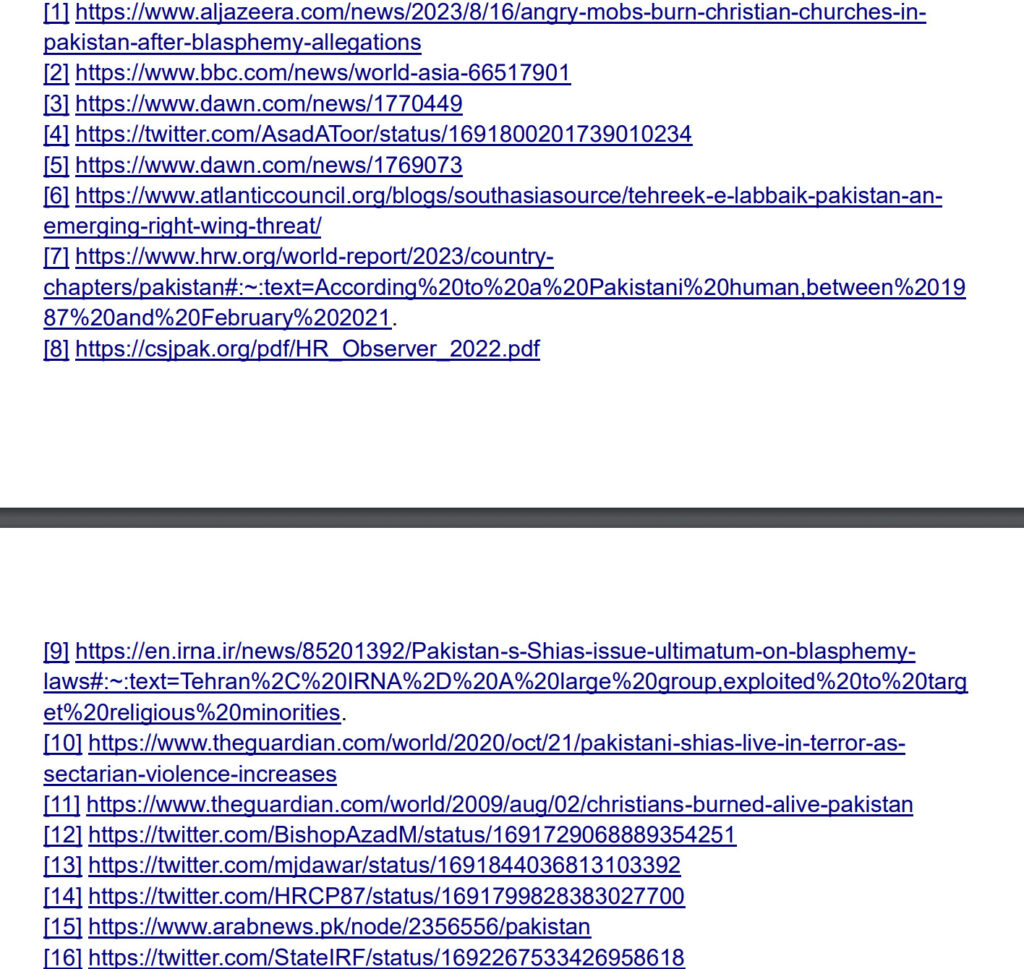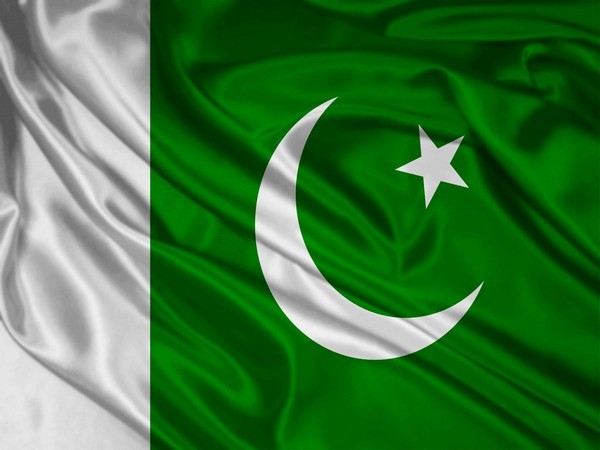On August 16, armed mobs of the Tehreek-i-Labbaik Pakistan (TLP), a Barelvi Islamist group, attacked dozens of churches in Punjab province’s Jaranwala town over fake blasphemy allegations on two local Christian residents.[1] Several videos on social media websites showed hundreds of people armed with batons and sticks attacking the Salvation Army Church and the Saint Paul Catholic Church, setting them ablaze, while another mob attacked private homes, torching them, and injuring over 300 people from the Christian community.[2]
[3] Ironically, local police also filed a report against the two Christian residents under the infamous blasphemy laws and immediately transferred the assistant commissioner of Jaranwala because he was a Christian and the Islamist mob after burning churches and dozens of homes demanded his transfer from the government.[4] This is yet
another brazen incident of a religious minority targeting in Pakistan.
Notably, the Jaranwala incident has taken few days after the previous Pakistan Democratic Movement (PDM) government passed the Criminal Laws (Amendment) Act, 2023 in the parliament, which would set a maximum penalty of life in prison for blasphemy related offenses with a minimum sentence of 10 years in prison.[5] Previously, blasphemy violations were only punishable by up to three years in prison, a fine, or both. The new legislation has further emboldened the Islamist organisations like the TLP or Lashkar-e-Jhangvi (LeJ) in Pakistan to put fake accusations on religious minorities for their personal interests.
[6] The brazen misuse of the blasphemy laws has become a regular affair in Pakistan with the tacit support from local political parties for electoral reasons. From 1987 through the beginning of 2021, more than 1,800 people were charged with blasphemy under Pakistan’s various anti-blasphemy laws.[7] Centre for Social Justice, an independent group advocating for the rights of minorities, has compiled data on blasphemy cases in Pakistan, which shows more than 2,000 people have been accused of blasphemy since 1987, and at least 88 people have been killed on these allegations.[8]
As per recent amendments, the anti-blasphemy law would apply to any person who directly or indirectly “defiles the sacred name” of any wife, family member, or companion of Prophet Muhammad through “written word, spoken word, visible representation, imputation, innuendo, or insinuation.” Fearing further marginalisation, the local Shia groups in Pakistan issued an “ultimatum to the government,” declaring they will march towards Islamabad and stage a massive sit-in protest on the first day of the Islamic month of Rabi al-Awwal (September 16) unless the controversial blasphemy laws were rescinded.
[9] In the recent years, Pakistan has seen an unprecedented rise in attacks and arrests of its Shia population, who make up between 15 percent and 20 percent of the Sunni-majority country.[10] The recent burning of churches and Christian homes in Jaranwala was due to impunity for militant Islamist mobs in Pakistan. In one of the worst attacks on Christians, a mob in 2009 burned an estimated 60 homes and killed six Christians in the district of Gojra in Punjab, after accusing them of insulting Islam.[11] Whereas Asia Bibi was convicted on fake blasphemy charges in 2010, but her conviction was overturned by the Supreme Court of Pakistan in 2018. During the Jaranwala incident, a senior Christian leader in Pakistan, Bishop Azad Marshall, appealed for help on social media and said he was “deeply pained and distressed.”
Furthermore, he claimed on X, formerly Twitter, that “A church building is being burnt as I type this message. Bibles have been desecrated and Christians have been tortured and harrased having been falsely accused of violating the Holy Quran. We cry out for justice and action from law enforcement and those who dispense justice and the safety
of all citizens to intervene immediately and assure us that our lives are valuable in our own homeland that has just celebrated independence and freedom.”[12]
Mohsin Dawar, a Pashtun leader, also expressed concerns over the incident and said on X: “The violence unleashed against Christians and the deplorable attacks on their Churches in Jaranwala are very shameful. The state has failed to protect religious minorities.
Promoting extremism and allowing extremists to spread hate results in such attacks.”[13] On the other hand, human rights organisations like the Amnesty International and Human Rights Commission of Pakistan condemned targeting of Christians and claimed that “the frequency and scale of such attacks—which are systematic, violent, and often uncontainable— appear to have increased in recent years. Not only has the state failed to protect its religious minorities, but it has also allowed the far right to permeate and fester within society and politics.”[14]
Additionally, there were reactions from the foreign governments on the incident. The United States has urged Pakistan to investigate mob attacks against Christians in Punjab. The statement said, “We are deeply concerned that churches and homes were targeted in response to reported Qur’an desecration in Pakistan.”[15] [16] In conclusion, the increasing blasphemy cases will deepen fear among religious minorities like Hindu, Christian, Shias, etc, in Pakistan, who are facing systemic violence.


